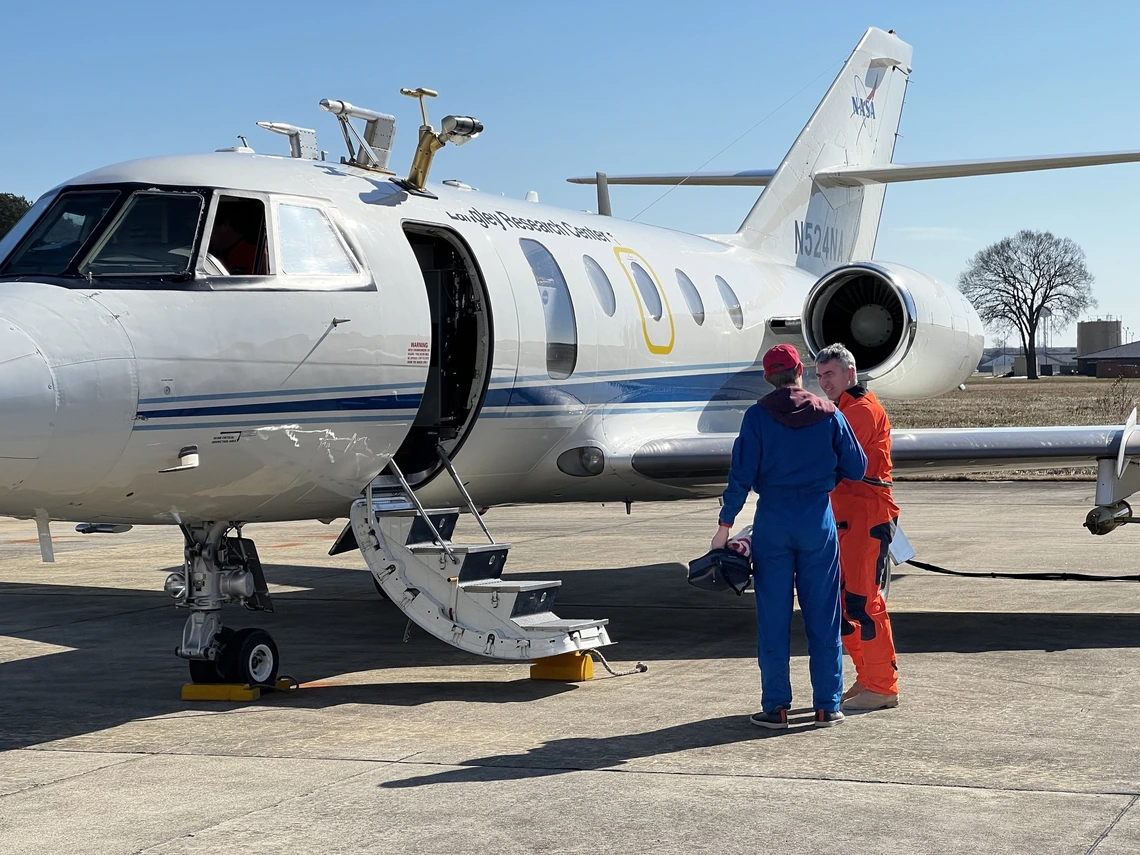Sorooshian's Atmosphere Study Wins NASA Group Achievement Award

After conducting 179 research flights over the western Atlantic Ocean, an international team of scientists led by CHEE professor Armin Sorooshian has won the NASA Group Achievement Award, one of the agency's prestigious Honor Awards.
The ACTIVATE (Aerosol Cloud meTeorology Interactions oVer the western ATlantic Experiment) research team won the award for resilience while conducting critical atmospheric studies. The ACTIVATE mission investigates aerosol-cloud interactions, which are one of the largest uncertainties in simulating and studying climate change.
"My first reaction was thinking of the large team that put in so much effort toward making our mission flights so successful in the midst of a pandemic and other challenges," Sorooshian said. "The faces of so many people on our operations team came to mind, along with memories of countless flight planning meetings."
Aerosols, very small airborne particles, come from both human and natural sources and can affect clouds over the ocean and how those clouds, in turn, affect the removal of these particles from the atmosphere. During their studies from 2020-2022, the team members examined a complex mix of aerosol types such as wildfire and agricultural smoke, urban pollution from the U.S. East Coast, marine emissions from the ocean, and even dust from North Africa.
"The flight data have led to new knowledge about the formation, evolution and eventual dissipation of clouds over the ocean, which can contribute to cooling because of their reflective properties," Sorooshian said. “The inspiring thing about ACTIVATE is that the data will continue to be explored by investigators, with discoveries to be made still in the future."
These flights also led to advances in new remote sensing capabilities to retrieve information about particles, clouds, and even ocean surface winds. COVID forced the team to alter their flight schedule, but they still managed to conduct an unprecedented amount of coordinated aircraft flights. Sorooshian, who also serves as a professor of hydrology and atmospheric sciences, led the project with Xubin Zeng, a professor in the same department.
The team also focused on outreach and communication in their project, hosting a number of open data workshops and lessons for K-12 students. This aligned with NASA’s goal of data dissemination and scientific engagement. Seven graduate students on the team even conducted interactive online outreach with over 400 students across nine schools and three countries.
The ACTIVATE team is now in a phase of extensive data analysis, with a focus on combining the field data with models to assess and improve simulations of aerosol-cloud interactions. They also plan to continue outreach, aiming to educate others about the science of ACTIVATE and how to use the data.
"One thing that was special about the project was the interaction between senior scientists and a number of early career members of our team including graduate students and postdocs," Sorooshian said. "Those interactions were inspiring for the younger members of our team, even motivating some of them to pursue opportunities at NASA centers for the next chapter of their careers."
